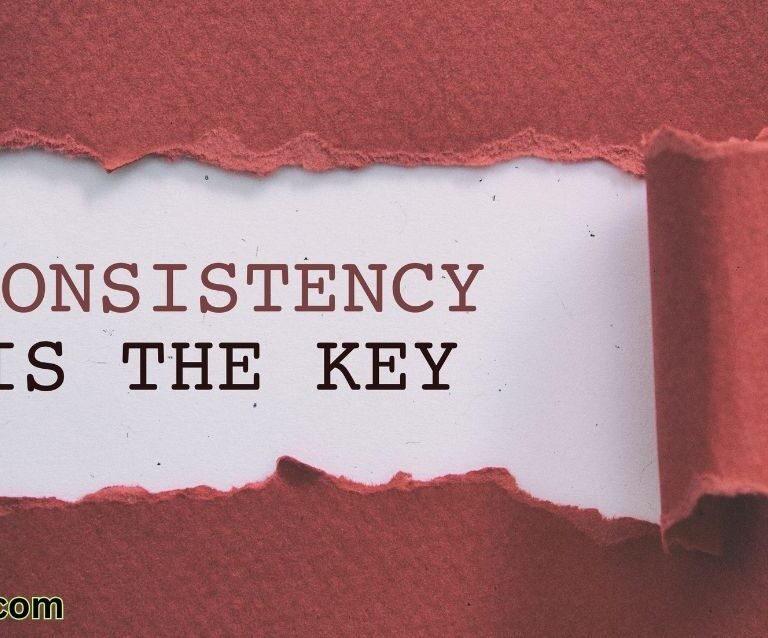The Concept of Talent vs. Hard Work
The debate between talent and hard work has long been a subject of interest among scholars, educators, and individuals striving for achievement. Talent is often perceived as an inherent ability or aptitude that someone has for a specific activity, such as art, music, or sports. It is a quality that people might be born with, allowing some individuals to excel with seemingly less effort than their peers. However, this perception can be misleading. While talent may indeed lend an advantage, it does not guarantee success on its own.
Hard work, on the other hand, refers to the consistent effort and dedication one puts into honing their skills and overcoming obstacles. It is often the driving force behind achievement. Numerous studies have shown that individuals who commit themselves to persistent practice and learning often outperform those who rely solely on natural talent. This highlights the importance of perseverance in the journey toward success.
Consider the story of Thomas Edison, often celebrated for his numerous inventions, including the phonograph and the practical electric light bulb. Edison’s success was not solely due to his innate talent in science and engineering; rather, it stemmed from his relentless work ethic and willingness to experiment. He famously stated, “Genius is one percent inspiration and ninety-nine percent perspiration,” illustrating that the majority of his achievements were the result of hard work.
Similarly, famous basketball player Michael Jordan was cut from his high school team, not because of a lack of talent, but due to his need to refine his skills. Through rigorous practice and dedication, he transformed into one of the greatest players in the history of the sport. These examples serve to reinforce the notion that while talent can provide a strong foundation, the unwavering commitment to hard work is what ultimately paves the way for success.
The Critical Role of Hard Work
Hard work serves as a fundamental pillar of success, often overshadowing innate talent in many circumstances. The notion that success is a mere product of talent tends to downplay the significant impact of effort and dedication. Hard work manifests in various forms, with persistence, dedication, and a continuous learning mindset standing out as key components. When individuals exhibit persistent effort toward their goals, they are more likely to overcome obstacles and achieve significant milestones on their journeys.
Numerous well-known figures have exemplified the critical role of hard work in their successes. For instance, Thomas Edison, who famously stated, “Genius is one percent inspiration and ninety-nine percent perspiration,” emphasized that tireless work and experimentation are crucial to innovation. His relentless efforts in developing the lightbulb not only showcased his commitment but also highlighted the importance of continuous learning through failures. In this vein, many entrepreneurs, athletes, and artists have attributed their accomplishments to sustained hard work rather than sheer talent alone.
Statistical data further illustrate the correlation between hard work and achievement. Studies indicate that individuals who dedicate substantial hours to mastering their craft are significantly more likely to excel in their fields. For example, research has shown that professional athletes train for thousands of hours before reaching top-tier levels in their sports. Moreover, a study published in the journal “Psychological Science” revealed that effort and resilience are often more reliable predictors of success than innate ability. These findings reinforce the idea that success is not just about talent; it is equally about the dedication and sustained effort put forth in pursuit of one’s goals.
Overcoming Obstacles: The Value of Resilience
The path to success is rarely linear; it is often fraught with challenges that test one’s perseverance and resilience. Hard work is undeniably important, but it is the ability to overcome obstacles that truly distinguishes successful individuals. Resilience is the capacity to recover quickly from difficulties; it is the shield that protects ambition from the arrows of adversity. Developing resilience not only enhances one’s capacity to navigate challenges but also fosters a deeper understanding of one’s capabilities.
One effective strategy for overcoming obstacles is to cultivate a positive mindset. This does not imply ignoring difficulties but rather reframing challenges as opportunities for growth. A positive attitude allows individuals to see potential solutions instead of becoming overwhelmed by problems. Maintaining an optimistic outlook can shift focus from setbacks to the lessons learned through those experiences, ultimately fostering personal development and enhancing problem-solving skills.
Furthermore, utilizing problem-solving techniques can be invaluable in tackling obstacles. Breaking problems into manageable parts makes them less daunting, allowing for systematic approaches to finding solutions. Seeking support from peers or mentors can also provide fresh perspectives and alternative strategies. Sharing challenges often leads to insights that might not have been considered in isolation. Examples of successful individuals who embody such resilience include Thomas Edison and J.K. Rowling, both of whom faced considerable setbacks before eventual success. Their journeys highlight that talent alone is insufficient; it is the relentless hard work and unwavering commitment to push through difficulties that ultimately leads to achievement.
Incorporating these strategies into one’s life not only prepares individuals for the inevitable trials they will encounter but also builds a solid foundation for long-term success. Cultivating resilience through a positive mindset and effective problem-solving skills equips individuals to meet challenges head-on, reinforcing the notion that success is as much about perseverance as it is about inherent talent.
Building a Strong Work Ethic
A robust work ethic is integral to achieving long-term success and serves as a driving force behind sustained effort and productivity. At the core of a strong work ethic are several defining characteristics that distinguish successful individuals from those who may struggle to reach their full potential. Important among these traits are time management, discipline, and self-motivation. Each of these elements plays a crucial role in shaping an individual’s approach to work and the ability to follow through on commitments.
Time management involves prioritizing tasks effectively and allocating the necessary time to complete them. Effective planners often utilize tools such as calendars or to-do lists, helping them visualize their responsibilities and deadlines. By establishing a structured schedule, individuals can ensure that they remain focused on their objectives without succumbing to distractions.
Discipline is the capacity to stay committed to one’s goals, even in the face of obstacles. It instills the ability to push through challenges, maintaining direction despite fatigue or setbacks. Cultivating discipline can be achieved through consistent routines, which reinforce positive behaviors and habits over time. Practicing mindfulness can also enhance self-control, making it easier to resist procrastination and maintain productivity.
Self-motivation is essential, as it drives individuals to pursue their ambitions even without external rewards or encouragement. Setting realistic goals can instill a sense of purpose, providing individuals with a clear target to aim for. The SMART goal-setting technique, which emphasizes Specific, Measurable, Achievable, Relevant, and Time-bound objectives, is a practical framework that can guide individuals in their endeavors.
To assess and improve your work ethic, regular self-reflection is vital. Evaluating one’s progress, identifying areas for development, and seeking feedback from peers can lead to significant improvements. By committing to these practices, individuals can strengthen their work ethic and, consequently, elevate their chances of success in their chosen fields.
Mindset Matters: Adopting a Growth Mentality
The concept of a growth mindset, introduced by psychologist Carol Dweck, encapsulates the belief that abilities and intelligence can be developed through dedication and hard work. This contrasts sharply with a fixed mindset, where individuals perceive their talents as static traits that determine their potential. A growth mentality encourages individuals to embrace challenges, learn from criticism, and see effort as a pathway to mastery. This mindset is essential in the context of achieving success, as it fosters resilience and persistence—qualities that are vital when faced with obstacles or setbacks.
Individuals who adopt a growth mindset are more likely to persevere through difficulties, viewing failures as opportunities for learning rather than insurmountable barriers. When one believes that growth is possible, the motivation to work hard increases substantially. This starkly illustrates why success is often attributed to hard work rather than innate talent. For instance, prominent figures such as Thomas Edison and J.K. Rowling exemplify this principle. Edison’s famous quote, “Genius is one percent inspiration and ninety-nine percent perspiration,” epitomizes the growth mentality—highlighting that diligence is fundamental to achieving extraordinary outcomes. Rowling, who faced numerous rejections before publishing the Harry Potter series, serves as a testament to how perseverance and continuous improvement can lead to monumental success.
The benefits of cultivating a growth mindset extend beyond individual accomplishments. Organizations that promote a culture of growth and learning tend to foster innovative thinking and adaptability among their workforce. By prioritizing effort and development, they can identify and nurture talent more effectively. In this light, the transformative power of a growth mindset becomes evident. It propels individuals and teams toward higher achievements and contributes significantly to success in various domains, underscoring the idea that hard work is indeed a decisive factor in eventual success.
The Synergy of Passion and Effort
The relationship between passion and hard work plays a crucial role in achieving success. When individuals are engaged in activities they are passionate about, their motivation levels significantly increase, often leading to higher levels of perseverance. Passion serves as an intrinsic motivator, providing the energy required to push through challenges and roadblocks that may arise on the journey to success. This synergy between passion and effort not only enhances productivity but also fosters resilience, which is essential in any endeavor.
Aligning one’s efforts with personal interests and strengths creates a unique dynamic that can lead to extraordinary outcomes. Individuals who pour their energy into pursuits they genuinely care about tend to exhibit greater commitment and determination. This alignment fosters a sense of fulfillment, making the hard work feel less burdensome and more like a natural extension of one’s identity. Furthermore, when individuals leverage their strengths and passions, they can cultivate a distinct competitive advantage in their field, setting the stage for success.
Numerous testimonials illustrate how individuals have turned their passions into thriving careers through relentless hard work. Take, for example, the story of a graphic designer who began creating art as a hobby. Despite facing numerous setbacks early on, her passion for design fueled her to continuously improve her skills and persevere through challenges. Today, she runs a successful design agency, attributing her achievements to the combination of her commitment to hard work and her unwavering passion for creativity.
In essence, the fusion of passion and effort is a profound driving force behind success. By nurturing interests and investing considerable effort in those areas, individuals can structure their experiences in a way that not only ensures progress but also results in a fulfilling career. It is this very synergy that underscores the notion that success is, indeed, primarily derived from hard work, complemented by the energizing force of personal passion.
Learning from Failure: Hard Work as a Teacher
Failure is often viewed as a negative experience, yet it can serve as a vital component in the pursuit of success. Embracing failure as a learning opportunity allows individuals to refine their skills and strategies. In fact, when combined with relentless hard work, failure can transform into a powerful teacher, providing essential lessons that pave the way for future accomplishments.
Reflecting on past failures is crucial for growth. One effective technique is to maintain a journal, documenting not only the setbacks encountered but also the insights gained. By analyzing what went wrong and identifying patterns, individuals can develop a clearer understanding of their weaknesses and areas for improvement. This reflective practice deepens self-awareness and encourages a mindset oriented towards personal development.
Many notable figures illustrate the transformative power of perseverance in the face of failure. For instance, Thomas Edison famously stated that he had not failed but rather found 10,000 ways that won’t work while inventing the light bulb. His relentless efforts in the face of repeated setbacks exemplify the importance of hard work in learning from failure. Similarly, J.K. Rowling faced numerous rejections before finding success with the Harry Potter series. Her story underscores that unwavering commitment and hard work can yield remarkable outcomes, even in the aftermath of adversity.
Incorporating lessons learned from failure into an ongoing effort is key to ensuring that setbacks do not define one’s journey. By adopting a proactive approach, individuals can turn challenges into actionable strategies. Understanding that failure is not an endpoint, but rather a stepping stone in the broader journey of success, reinforces the notion that hard work is pivotal. This perspective fosters resilience, highlighting that with purpose-driven effort, greatness can emerge from hardship.
Practical Steps to Cultivate Hard Work
To effectively cultivate hard work and dedication towards achieving personal and professional goals, implementing structured strategies is essential. Begin by developing a detailed schedule that highlights your daily tasks and long-term objectives. Allocating specific time blocks for each activity can improve focus and enhance productivity. Consider utilizing digital tools or classic planners that cater to your organizational preferences.
Another crucial element of fostering hard work is to set up accountability systems. Share your goals with a trusted friend, family member, or mentor who can provide encouragement and constructive feedback. Regular check-ins can serve as motivation to stay on track and offer insights on potential improvements. Alternatively, joining a group of like-minded individuals with similar aspirations can create a community that champions perseverance and hard work.
Creating a supportive environment significantly influences the ability to work hard. Surround yourself with individuals who inspire determination and commitment. This can be achieved by engaging in networking groups or community organizations aligned with your interests. In addition, decluttering your workspace and minimizing distractions will help maintain focus, allowing for uninterrupted periods of concentrated effort.
Monitoring your progress is another vital component of cultivating hard work. Utilize worksheets or apps that track daily achievements, setbacks, and reflections. This practice not only provides insights into your dedication but also highlights areas requiring improvement. Regularly reviewing your progress can help reinforce the benefits of hard work, fostering a mindset geared towards continuous growth. By integrating these actionable strategies, you will enhance your ability to work diligently and remain steadfast in your pursuit of success.
The journey to success is often filled with challenges and obstacles, which require resilience and a commitment to push through difficulties
In reflecting on the discussion surrounding the intricate relationship between perseverance and success, it becomes evident that hard work plays a fundamental role in achieving our goals. While innate talent may offer a starting point, it is the sustained effort and unwavering determination that truly define our paths. Emphasizing the significance of consistent labor allows us to recognize that success is shaped not merely by what we are born with, but rather by the relentless striving we put forth in pursuit of our aspirations.
The journey to success is often filled with challenges and obstacles, which require resilience and a commitment to push through difficulties. Those who embrace this ethos tend to develop a stronger character and deeper understanding of their potential. Each endeavor, no matter how small, contributes to the overall narrative of our achievements. This perspective encourages individuals to value incremental progress as opposed to solely focusing on the end result. By doing so, one cultivates a mindset centered around growth, learning, and adaptation.
As we encourage ourselves and others to prioritize hard work, it becomes essential to reflect on our individual journeys. At every stage, we should remind ourselves that the consistent application of effort brings us closer to our goals. The power of perseverance is a reminder that, regardless of the hurdles we face, it is our dedication to the process that ultimately leads to accomplishment. Let us commit to putting in the necessary effort and to recognizing that each step taken matters significantly in our pursuit of success. Embrace the challenges ahead, and let your hard work illuminate the path towards achieving your dreams.









